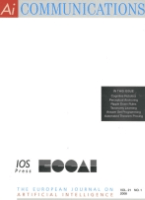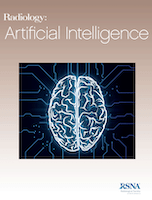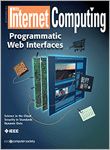
Kunstliche Intelligenz
Scope & Guideline
Pioneering Insights into Intelligent Systems
Introduction
Aims and Scopes
- Quantum Computing and AI Integration:
The journal emphasizes the intersection of quantum computing and artificial intelligence, exploring how quantum technologies can enhance AI capabilities, particularly in areas such as natural language processing and optimization. - Healthcare Applications of AI:
A significant focus is on the application of AI in healthcare, covering topics such as diagnostic support systems, medical imaging, and patient management, highlighting the transformative potential of AI in improving health outcomes. - Explainable AI (XAI):
The journal consistently addresses the need for transparency and interpretability in AI systems, discussing frameworks and methodologies for developing explainable AI that can be trusted by users and stakeholders. - Interdisciplinary Approaches to AI:
Künstliche Intelligenz seeks to integrate insights from various fields, including cognitive science, ethics, and social sciences, to foster a holistic understanding of AI's implications and applications. - Educational Initiatives in AI:
The journal explores educational strategies for teaching AI concepts at various levels, emphasizing the importance of AI literacy and computational thinking in K-12 education.
Trending and Emerging
- Quantum AI Research:
A notable trend is the increasing focus on quantum computing and its applications in AI, including quantum algorithms and hybrid models that leverage quantum technologies for enhanced computational capabilities. - Human-Centered AI:
There is a growing emphasis on creating AI systems that prioritize human needs, including research on human-robot interaction, user-centered design, and the development of empathetic AI systems. - AI for Social Good:
Emerging themes include the application of AI for addressing social challenges, such as public health, environmental sustainability, and disaster response, indicating a commitment to leveraging AI for positive societal impact. - Robustness and Security in AI:
Recent works are increasingly addressing the challenges of robustness and security in AI systems, focusing on developing techniques to ensure reliability and trustworthiness in critical applications. - Advanced Learning Techniques:
There is a trend towards exploring novel learning techniques, such as active learning, transfer learning, and reinforcement learning, which aim to improve the efficiency and effectiveness of AI models in various domains.
Declining or Waning
- Traditional AI Techniques:
There appears to be a waning interest in classical AI methods, such as rule-based systems and expert systems, as the field increasingly prioritizes data-driven approaches and machine learning techniques. - General AI Ethics Discussions:
Broad discussions on AI ethics are becoming less frequent, with a shift towards more specific ethical considerations related to particular applications, such as healthcare and autonomous systems. - AI in Agriculture:
While there have been notable publications on AI applications in agriculture, this theme is seeing a decline in frequency, possibly due to a saturation of initial exploratory studies and a shift towards more specialized applications.
Similar Journals

Computer Science Journal of Moldova
Bridging Regional Insights with Global ImpactComputer Science Journal of Moldova, published by the Institute of Mathematics and Computer Science Academy, serves as a pivotal platform for disseminating research in the field of computer science since its inception in 1993. With a focus on a diverse range of subjects, including Artificial Intelligence, Computational Mathematics, and Software Engineering, this open access journal aims to foster innovation and collaboration among researchers, students, and industry professionals. Despite its current positioning in the lower quartiles as per the latest Scopus rankings, the journal remains committed to enhancing the visibility of regional research and addressing contemporary challenges through scholarly contributions. The journal’s open access model ensures that knowledge is freely available, promoting broader readership and impact within the international academic community. As it moves through the converged years from 2019 to 2024, the Computer Science Journal of Moldova continues to aspire toward empowering the next generation of computer scientists while enriching the global dialogue in this rapidly evolving field.

JMIR Medical Informatics
Connecting Researchers and Practitioners in Health InformaticsJMIR Medical Informatics is a leading open access journal dedicated to the field of medical informatics, published by JMIR Publications, Inc. since 2013 in Canada. With an impressive impact factor and a distinguished Q2 ranking in both Health Informatics and Health Information Management categories, this journal plays a pivotal role in disseminating cutting-edge research and innovative practices. Covering a wide scope that includes clinical informatics, health information systems, and data analytics, JMIR Medical Informatics provides valuable insights for researchers, practitioners, and policymakers alike. The journal is accessible to a global audience, ensuring that pioneering studies and methodologies reach those who can apply them to enhance health outcomes. With its commitment to advancing the body of knowledge in medical informatics, this journal stands as a vital resource for anyone involved in or studying the intersection of healthcare and technology.

PROCESAMIENTO DEL LENGUAJE NATURAL
Elevating Knowledge in the Realm of NLPPROCESAMIENTO DEL LENGUAJE NATURAL, published by the SOCIEDAD ESPAÑOLA DE PROCESAMIENTO DEL LENGUAJE NATURAL (SEPLN), is a premier journal that serves as a vital resource in the interdisciplinary fields of Computer Science and Linguistics. With an impressive 2023 impact factor ranking it as Q2 in Computer Science Applications and Q1 in Linguistics and Language, this journal offers valuable insights into the latest advancements and research trends. Based in Spain, and associated with the University of Alicante, the journal provides a platform for the dissemination of high-quality research, contributing significantly to the understanding of natural language processing and its applications. Although it operates under a traditional subscription model, the accessibility and relevance of its content make it an essential read for researchers, professionals, and students keen on exploring the intersection of language and technology. The journal’s performance, reflected in its Scopus ranks that place it in the top percentiles across various categories, reaffirms its importance in academia and its commitment to fostering innovation and knowledge in the field.

AI COMMUNICATIONS
Advancing Knowledge in the AI Landscape.AI COMMUNICATIONS is a distinguished journal published by IOS PRESS, focusing on the dynamic field of Artificial Intelligence. With a rich history dating back to 1987, this journal covers a broad spectrum of topics, including the latest advancements in AI methodologies, applications, and implications for society. Despite holding a Q3 classification in the 2023 category of Artificial Intelligence, it provides an essential platform for dialogue and dissemination of research, highlighted by its global accessibility in the realm of AI communications. Researchers, professionals, and students alike will find a wealth of knowledge within its pages, which aim to bridge the gap between cutting-edge research and practical applications in AI. By contributing to this journal, authors have the potential to engage with a diverse audience and impact the ongoing discourse surrounding artificial intelligence technologies.

Radiology-Artificial Intelligence
Pioneering the Future of Radiology with AI InsightsRadiology-Artificial Intelligence is an esteemed journal published by the Radiological Society of North America (RSNA), focusing on the intersection of radiology and artificial intelligence. Since its inception in 2019, this journal has rapidly established itself within the academic community, achieving a remarkable Q1 classification in 2023 across multiple categories, including Artificial Intelligence, Radiological and Ultrasound Technology, and Radiology, Nuclear Medicine and Imaging. With an impressive impact factor reflected by its high Scopus rankings—6th in the realm of Radiology, 3rd in Radiological Technology, and 25th in Computer Science—this journal stands as a crucial platform for groundbreaking research and innovation. Researchers, professionals, and students alike will find this publication an invaluable resource for advancing their understanding of AI applications in radiology, enhancing diagnostic capabilities, and improving patient care. The journal operates on a non-open access model, ensuring high-quality peer-reviewed content. Located in Oak Brook, Illinois, the RSNA continues to lead the field by promoting excellence in the integration of artificial intelligence into medical imaging practices.

Intelligenza Artificiale
Transforming Theoretical Concepts into Practical ApplicationsIntelligenza Artificiale is a prominent academic journal dedicated to advancing the field of artificial intelligence, published by IOS PRESS, a renowned publisher in the scientific community. Based in the Netherlands, this journal's ISSN is 1724-8035 and its E-ISSN is 2211-0097. With a current impact factor that reflects its relevance in the scholarly landscape, it operates in the Q2 quartile of the Artificial Intelligence category as of 2023, which ranks it notably at #200 out of 350 within its field according to Scopus data. The journal provides a valuable platform for researchers, professionals, and students to disseminate and access cutting-edge findings from 2018 to 2024, focusing on the innovative applications and theoretical developments in artificial intelligence. With its commitment to fostering academic dialogue and collaboration, Intelligenza Artificiale is essential for anyone looking to stay at the forefront of AI research and practice.

IEEE Computational Intelligence Magazine
Bridging Theory and Application in Computational IntelligenceIEEE Computational Intelligence Magazine, published by the esteemed IEEE-INST ELECTRICAL ELECTRONICS ENGINEERS INC, is an essential resource for researchers and professionals in the fields of Artificial Intelligence and Theoretical Computer Science. With a robust Q1 ranking in both categories for 2023, this magazine stands out as a leader in disseminating cutting-edge research and innovative applications within computational intelligence. As an invaluable conduit for knowledge, it covers a diverse range of topics, including but not limited to machine learning, neural networks, and data mining. The magazine is particularly recognized for its interdisciplinary approach, bridging gaps between theory and application while contributing to advancements in technology and society. Although it does not offer open access, the insights provided are critical for staying at the forefront of this rapidly evolving discipline. Join a community of like-minded scholars and practitioners by exploring the latest findings and trends published from 2006 to 2024, operating from its headquarters at 445 Hoes Lane, Piscataway, NJ, United States.

AI MAGAZINE
Unveiling Insights in Machine Learning and Beyond.AI MAGAZINE, published by the American Association for Artificial Intelligence, serves as a pivotal resource in the field of artificial intelligence. With an established history since 1984 and convergence periods highlighting its adaptability, the journal remains integral for sharing significant advancements and research findings. Housed in the United States, it provides a comprehensive platform for professionals, researchers, and students alike, delving into topics such as machine learning, natural language processing, and intelligent systems. Despite its current Q3 ranking in the Artificial Intelligence category, AI MAGAZINE sustains a significant impact through its diverse range of articles aimed at bridging the gap between theory and application. Although it is not an open-access journal, it continues to nurture a vibrant academic community, encouraging the exchange of knowledge and innovation in this rapidly evolving domain.

Machine Intelligence Research
Unlocking Innovations in AI and Applied MathematicsMachine Intelligence Research is a premier academic journal published by SPRINGERNATURE, dedicated to advancing knowledge in the rapidly evolving fields of Artificial Intelligence, Applied Mathematics, and more. With its ISSN 2731-538X and E-ISSN 2731-5398, the journal is recognized for its impact, holding a distinguished position in various Q1 categories for 2023, including Computer Vision and Pattern Recognition and Control and Systems Engineering. Operating under an Open Access model, it ensures that groundbreaking research from China and around the world remains accessible to a global audience, promoting collaboration and innovation. As a beacon for researchers, professionals, and students, Machine Intelligence Research aims to disseminate high-quality research findings, innovative methodologies, and influential theories, thereby shaping the future landscapes of science and technology.

IEEE INTERNET COMPUTING
Connecting Research with Real-World ApplicationsIEEE Internet Computing is a prominent journal in the field of computer networks and communications, published by the esteemed IEEE Computer Society. With an impressive impact factor and ranking in the Q1 category for 2023, it stands out as a vital resource for researchers, professionals, and students alike, seeking to delve into the latest advancements and trends in internet computing. Since its inception in 1997, the journal has provided a platform for pioneering studies and insightful discussions that bridge theory and practice in the rapidly evolving digital landscape. The journal is indexed with an excellent Scopus rank of #77 out of 395, placing it in the 80th percentile of its category, which underlines its relevance and influence in the academic community. While it currently does not offer Open Access options, its rich archive of scholarly articles remains accessible to those affiliated with research institutions and libraries. Furthermore, the journal's comprehensive coverage continues through 2024, ensuring it remains at the forefront of the discipline.